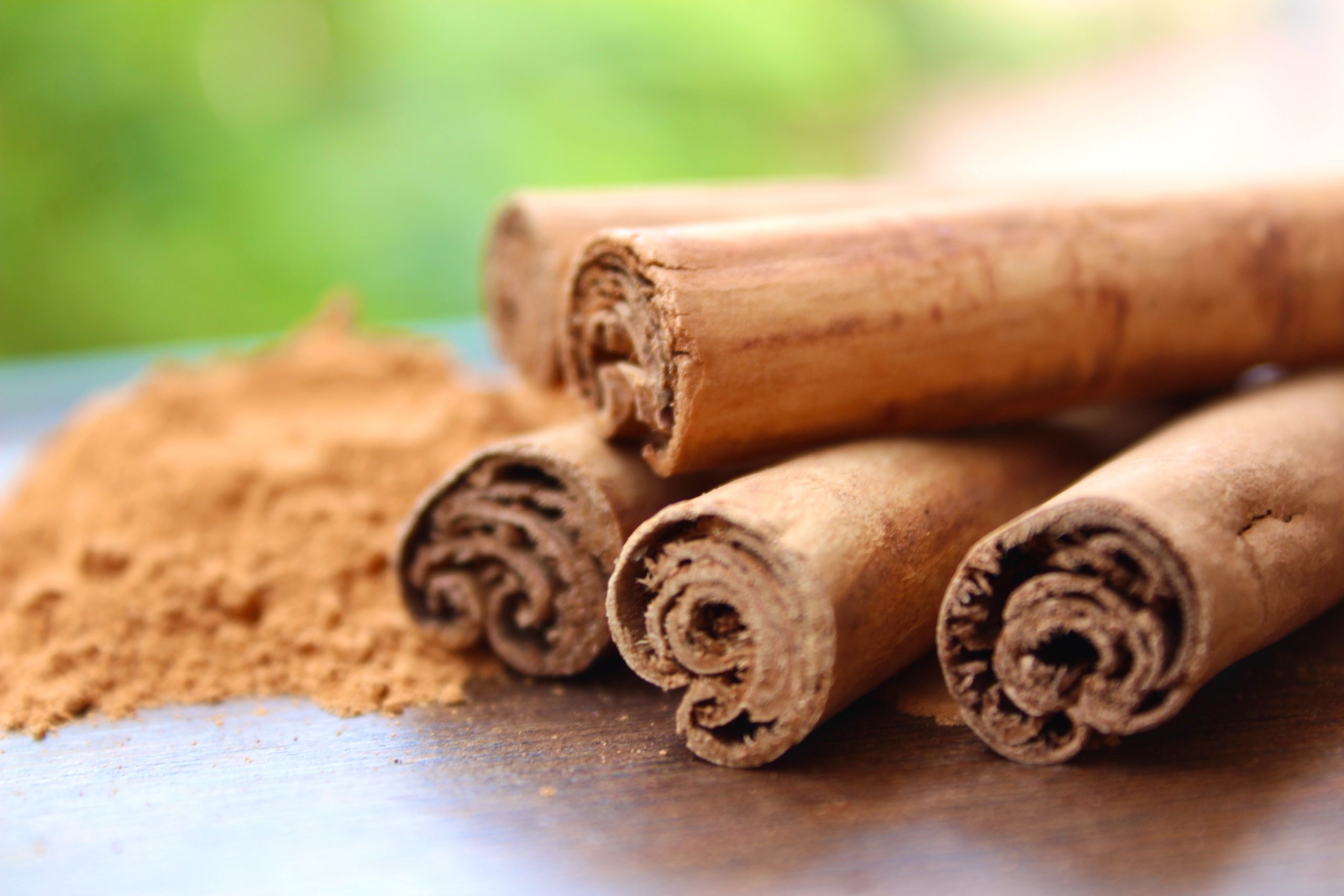Background
Diabetes is a complicated but common endocrine disorder with high global prevalence.
415 million individuals worldwide were estimated to have diabetes in 2015. Type 2 diabetes (T2D) accounts for most of the cases.1
Patients may seek to manage their diabetes with both prescribed medications as well as alternative therapies.

There are several over the counter (OTC) products that are believed to have some efficacy. Some of the most common herbal therapies are found below:
Clinical Evidence
1. Cinnamon

A randomized controlled trial (RCT) published in 2019 evaluated the use of cinnamon in patients with diabetes.2
| Population | 140 patients with T2D, 30-80 years old, with BMI of 18.5 to 40 kg/m2, and fasting blood glucose (FBG) of 126 to 250 mg/dL. |
| Intervention | Cinnamon bark powder vs starch placebo in 500 mg capsules twice daily for 3 months. |
| Results: In patients with a BMI ≥ 27 | – FBG decreased significantly in the cinnamon group compared to the placebo group (mean total change of -19.4 vs -0.22; P < 0.001). – A1C reduction had significance in patients with BMI ≥ 27 (-0.42% with cinnamon vs 0.004% with placebo; P < 0.001). |
| Results: Regardless of BMI | – 2hr post-prandial glucose levels decreased more in patients taking cinnamon (overall change of −16.9 mg/dL, vs -3.5 mg/dL with placebo; P < 0.008). |
| Safety | – No adverse drug reactions in the cinnamon group – 1 incident of allergic reaction in the placebo group |
These results indicate that cinnamon may be effective in decreasing glycemic outcomes in patients with T2D, especially if the patient has a higher BMI of ≥ 27 kg/m2.
2. Ginseng

The efficacy of ginseng in the setting of T2D was explored in a meta-analysis by Gui and colleagues.3
| Population | 390 patients with either a T2D or impaired glucose tolerance |
| Interventions | American ginseng, fermented red ginseng, Korean red ginseng, or hydrolyzed ginseng extract (depending on study) vs placebo |
| Results | – Decrease in A1C was not significantly better in the ginseng group vs placebo (P = 0.355) – Fasting blood glucose was decreased more in ginseng group (standard difference in means = – 0.306; P = 0.01) |
This systematic review points to the possible efficacy of ginseng therapies in lowering fasting blood glucose.
However, larger RCTs are needed to confirm these results for each specific type of ginseng supplement.
3. Apple Cider Vinegar

Another meta-analysis aimed to review the effect of apple cider vinegar (ACV) on glycemic and serum lipid parameters.4
| Population | Patients with diabetes and/or obesity |
| Intervention | ACV daily vs water/another beverage/restricted-calorie intake |
| Results | No statistically significant difference between ACV group and comparator group on the reduction of fasting blood glucose (FBG) or A1C |
These results indicate that ACV is non-effective for lowering FBG or A1C in patients with diabetes.
4. Probiotics

The use of probiotics in diabetic patients was studied in a RCT by Tonucci and colleagues.5
| Population | 45 patients with T2D diagnosis for at least 1 year, age between 35 and 60 years, and BMI of < 35 kg/m2. |
| Intervention | 120 g/day of fermented milk (containing L. acidophilus and B. animalis lactis) vs conventional fermented milk taken for 6 weeks |
| Results | -A1c levels were reduced more significantly in the probiotic group compared to the placebo group (P = 0.02) – Fasting plasma glucose did not have significant changes when comparing probiotics to placebo (P > 0.05) |
These findings point to the possible efficacy of probiotics in decreasing A1C compared to placebo in patients with T2D.
Conclusion
There is still conflicting evidence as to whether or not herbal supplements should be used for glycemic control.
The data on cinnamon is likely the strongest; whereas studies on the other remedies did not have statistical significance or only showed possible efficacy.
It is important to counsel patients on the use of OTC therapies, and to educate on realistic expectations of treatment efficacy.
Given the overwhelming clinical data on first line treatments for T2D (e.g. metformin, SGLT-2 inhibitors, GLP-1 agonists), it is difficult to justify the use of OTC supplements in this patient population.
The only product I would recommend, based on benefit vs risk analysis and given no contraindications, is cinnamon 500 mg twice daily specifically in overweight or obese patients.
References
- Chatterjee S, Khunti K, Davies MJ. Type 2 diabetes. Lancet. 2017 Jun 3;389(10085):2239-2251.
- Zare R, Nadjarzadeh A, Zarshenas MM, Shams M, Heydari M. Efficacy of cinnamon in patients with type II diabetes mellitus: A randomized controlled clinical trial. Clin Nutr. 2019 Apr;38(2):549-556.
- Gui QF, Xu ZR, Xu KY, Yang YM. The Efficacy of Ginseng-Related Therapies in Type 2 Diabetes Mellitus: An Updated Systematic Review and Meta-analysis. Medicine (Baltimore). 2016 Feb;95(6):e2584.
- Hadi A, Pourmasoumi M, Najafgholizadeh A, Clark CCT, Esmaillzadeh A. The effect of apple cider vinegar on lipid profiles and glycemic parameters: a systematic review and meta-analysis of randomized clinical trials. BMC Complement Med Ther. 2021 Jun 29;21(1):179.
- Tonucci LB, Olbrich Dos Santos KM, Licursi de Oliveira L, Rocha Ribeiro SM, Duarte Martino HS. Clinical application of probiotics in type 2 diabetes mellitus: A randomized, double-blind, placebo-controlled study. Clin Nutr. 2017 Feb;36(1):85-92.

